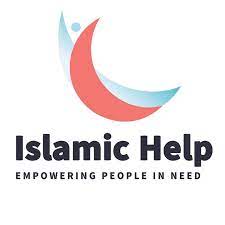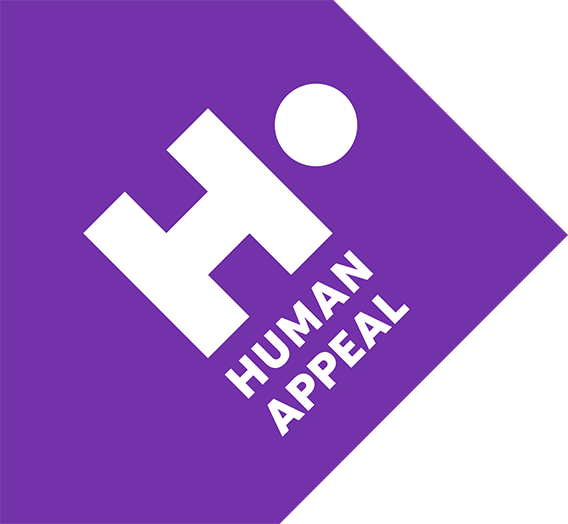How Technology is Revolutionising Zakat Collection and Distribution
Zakat, one of the Five Pillars of Islam, has always been a powerful force for wealth redistribution and social welfare. Traditionally, it has been collected and distributed through mosques, charitable organisations, and direct giving. However, in today’s digital era, technology is transforming the way Muslims calculate, pay, and distribute Zakat—making the process more efficient, transparent, and impactful than ever before.
From mobile apps and blockchain to AI-driven analytics and cryptocurrency donations, let’s explore how technology is reshaping the world of Zakat and maximising its benefits for those in need.
1. Mobile Apps: Simplifying Zakat Calculation & Payment
One of the most common challenges Muslims face is accurately calculating their Zakat and finding the best way to distribute it. Today, mobile apps are streamlining this process by offering:
- Automated Zakat Calculators – Users input their assets (cash, gold, investments, etc.), and the app instantly calculates the Zakat due.
- Seamless Digital Payments – Zakat can be transferred directly to verified charities and causes via credit cards, PayPal, Apple Pay, or even cryptocurrency.
- Recurring Zakat Reminders – Apps help users stay consistent in their annual giving.
Examples: Apps like NZF (National Zakat Foundation) and Zakatify are making it easier than ever to calculate, track, and donate Zakat effortlessly.
2. Blockchain: Ensuring Transparency & Trust
One of the biggest concerns surrounding charitable giving—including Zakat—is transparency. Donors often wonder: Where exactly is my money going?
Blockchain technology is solving this issue by:
- Providing Immutable Transaction Records – Every donation is permanently recorded, ensuring accountability.
- Enabling Real-Time Tracking – Donors can see exactly how and where their Zakat is being used.
- Eliminating Middlemen – Blockchain-based Zakat platforms allow direct transactions, reducing administrative costs and corruption risks.
Some Islamic charities are already exploring blockchain-based Zakat platforms to ensure complete transparency and real-time fund tracking.
3. AI & Big Data: Identifying the Right Zakat Recipients
Artificial Intelligence (AI) and big data analytics are making Zakat distribution more efficient and targeted by:
- Assessing Financial Need – AI analyzes income levels, location, and social conditions to ensure only eligible recipients receive Zakat.
- Predicting Future Needs – AI-driven insights can forecast poverty trends and identify which communities require urgent Zakat aid.
- Automating Distribution – Machine learning models help charities prioritize beneficiaries, ensuring fair and just allocation of Zakat funds.
AI-powered Zakat programs in the UAE and Saudi Arabia are being used to optimize charitable efforts and minimize fund wastage.
4. Crowdfunding & Peer-to-Peer Zakat Giving
Instead of relying solely on large organizations, technology now enables direct giving through crowdfunding and peer-to-peer (P2P) platforms:
- Zakat Crowdfunding Platforms – Websites like LaunchGood allow donors to contribute directly to verified Zakat-eligible causes.
- Peer-to-Peer (P2P) Giving – Donors can directly transfer their Zakat to individuals in need via digital wallets and money transfer apps.
- Automated Monthly Giving – Some platforms allow users to set up recurring Zakat donations, ensuring continuous support for beneficiaries.
Platforms like GoFundMe, MuslimsGive, and Kiva are being used to raise millions in Zakat for communities worldwide.
5. Cryptocurrency & Digital Currencies for Zakat
With the rise of Bitcoin, Ethereum, and other digital assets, many Muslims are now looking for ways to pay Zakat on their cryptocurrency holdings. Some organisations have started:
- Accepting Zakat in Cryptocurrency – Making it easier for digital asset holders to fulfill their obligations.
- Using Stablecoins for Global Distribution – Reducing transaction fees and eliminating currency exchange barriers.
- Leveraging Smart Contracts – Ensuring that Zakat funds are automatically and securely distributed to eligible recipients.
The United Kingdom’s Zakat House now accepts Bitcoin and Ethereum for Zakat donations, demonstrating the future of digital Islamic philanthropy.
6. E-Government Systems for Zakat Collection & Distribution
Some Muslim-majority countries are integrating Zakat collection into their national financial systems, ensuring more efficient distribution. Key advancements include:
- Automated Zakat Deductions – Some governments automatically deduct Zakat from salaries and bank accounts, ensuring compliance.
- National Zakat Funds – Governments use technology to collect and allocate Zakat funds fairly.
- Online Zakat Applications – Beneficiaries can apply for Zakat assistance digitally, reducing paperwork and wait times.
Malaysia’s Zakat Collection Center has an online portal that processes Zakat contributions and distributes aid within 48 hours.
Challenges & The Future of Digital Zakat
While technology is transforming Zakat, there are still challenges that need to be addressed:
- Digital Divide – Many impoverished communities lack internet access, limiting their ability to receive Zakat digitally.
- Cybersecurity Risks – Online transactions are vulnerable to hacking and fraud.
- Religious Compliance – Ensuring that digital Zakat solutions adhere to Islamic finance principles.
What’s Next for Digital Zakat?
- AI-Powered Zakat Chatbots – Assisting users in calculating and paying their Zakat.
- Augmented Reality (AR) Giving Experiences – Allowing donors to see the real impact of their contributions.
- Zakat-Based Social Impact Tokens – Investing in sustainable development projects using blockchain-based Islamic finance models.
Final Thoughts: A New Era of Zakat Giving
Technology is making Zakat more accessible, transparent, and impactful than ever before. From mobile apps and AI-driven analytics to cryptocurrency donations and blockchain transparency, the way we give and distribute Zakat is evolving to meet the needs of the modern world.
How You Can Benefit from These Innovations
- Use Zakat apps to calculate and pay with ease.
- Donate via trusted blockchain-powered platforms for maximum transparency.
- Support AI-driven Zakat projects that ensure efficient distribution.
As digital solutions continue to evolve, Zakat has the potential to eradicate poverty, empower communities, and create a fairer economic system in the Muslim world and beyond.
Published: 14 February 2025
Updated: 6 March 2025







